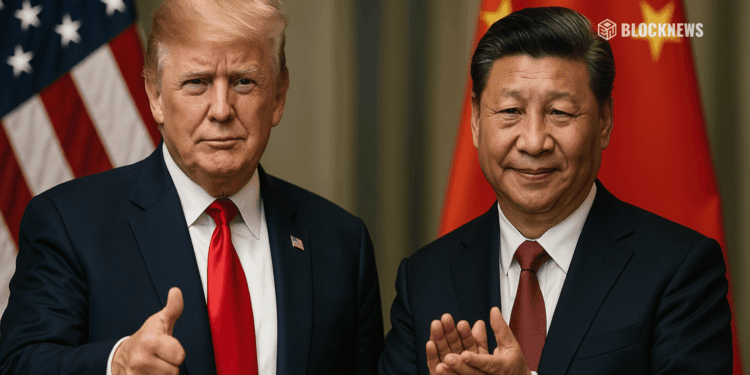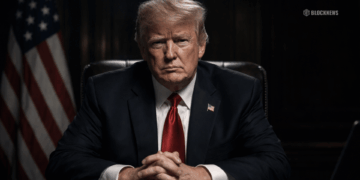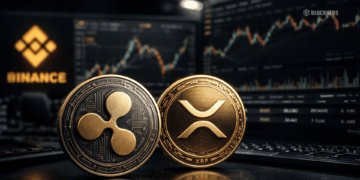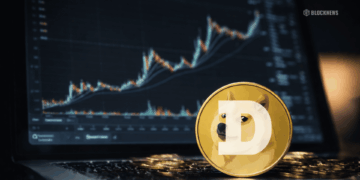• Trump and Xi meet for the first time in six years, signaling easing tensions.
• China agrees to suspend rare-earth export controls and buy more US farm goods.
• Tariffs partially rolled back as both sides inch toward a broader trade deal.
For the first time in six years, US President Donald Trump and Chinese President Xi Jinping met face-to-face in South Korea, signaling what could be a major turning point in the world’s most consequential trade relationship. The talks, which Trump called “amazing,” didn’t yield a formal agreement but resulted in a mutual commitment to resolve key trade disputes and ease long-standing tensions. Beijing described the meeting as achieving a “consensus to resolve major trade issues,” suggesting progress toward a broader deal after years of tariffs and economic friction.
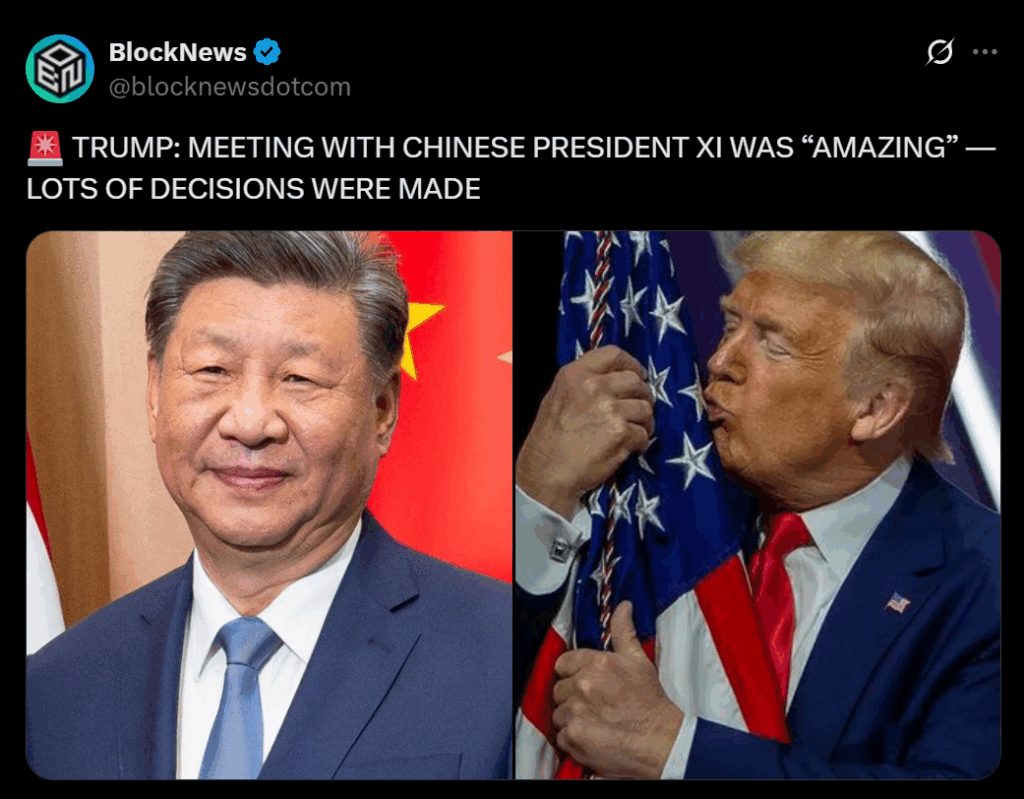
The leaders’ encounter comes after Trump’s aggressive tariff campaign that sparked a prolonged trade war, with both nations imposing steep duties on each other’s goods. While a truce was reached in May, trust between Washington and Beijing remained fragile — until now.
Trade Wins for Washington
Trump told reporters that China agreed to suspend export controls on rare earths, a crucial concession given their role in producing semiconductors, electric vehicles, and advanced defense systems. This move could relieve pressure on US industries heavily reliant on Chinese rare-earth materials.
The US also secured a commitment for China to resume large-scale purchases of soybeans and other agricultural goods, a crucial boost for American farmers hit hard by Beijing’s retaliatory tariffs. These developments, Trump said, mark “a tremendous breakthrough” and could restore billions in trade value between the two economies.
However, no clear progress was announced regarding the TikTok dispute, as the US continues to push for a separation between the app’s American operations and its Chinese parent company, ByteDance. Beijing responded cautiously, saying it would “continue working to resolve outstanding issues.”
Tariffs, Tech, and Fentanyl
While the meeting showed progress, many tariffs remain. Goods entering the US from China will still face tax rates above 40%, indicating a partial rollback rather than a full reset. In exchange, the US agreed to ease some tariffs on imports linked to fentanyl precursor chemicals — a gesture aimed at encouraging China’s cooperation in addressing the opioid crisis.
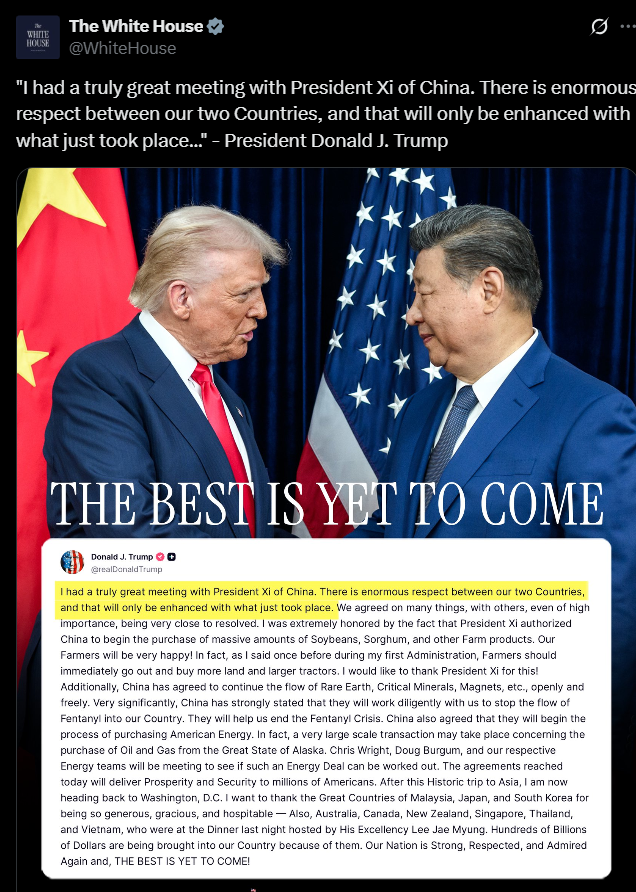
One surprising development involved Nvidia CEO Jensen Huang, who may soon meet with Chinese officials. Nvidia has been at the center of the US–China chip war, with Washington seeking to curb China’s access to cutting-edge AI chips over national security concerns. Trump said Beijing’s outreach to Nvidia marks another step toward “balanced technology relations.”
The Tone: Optimistic Yet Cautious
While Trump’s remarks were celebratory, the atmosphere was more subdued than his earlier Asia tour stops. The meeting was held behind closed doors at an airport building under tight security — no gold palaces or grand ceremonies this time. Still, observers say the one-hour discussion may prove to be the most impactful session of Trump’s entire trip.
Chinese officials, meanwhile, struck a more measured tone. Xi said the talks laid the groundwork for “outcomes that will serve as a reassuring pill for both economies.” Former State Council adviser Henry Wang told BBC Radio that while a deal is still pending, “a framework and structure has been laid — it’s a good start.”
What’s Next for US–China Relations
Beijing extended an invitation for Trump to visit China in April, a move widely seen as a sign of goodwill and renewed diplomatic engagement. If follow-up talks progress, the two sides could announce a formal trade framework by mid-2026, covering tariffs, tech exports, and market access.
For now, markets appear cautiously optimistic. The easing of rare-earth restrictions and renewed soybean imports could help stabilize global supply chains, while ongoing dialogue between Washington and Beijing hints at the possibility of a new era of pragmatic cooperation after years of economic brinkmanship.


